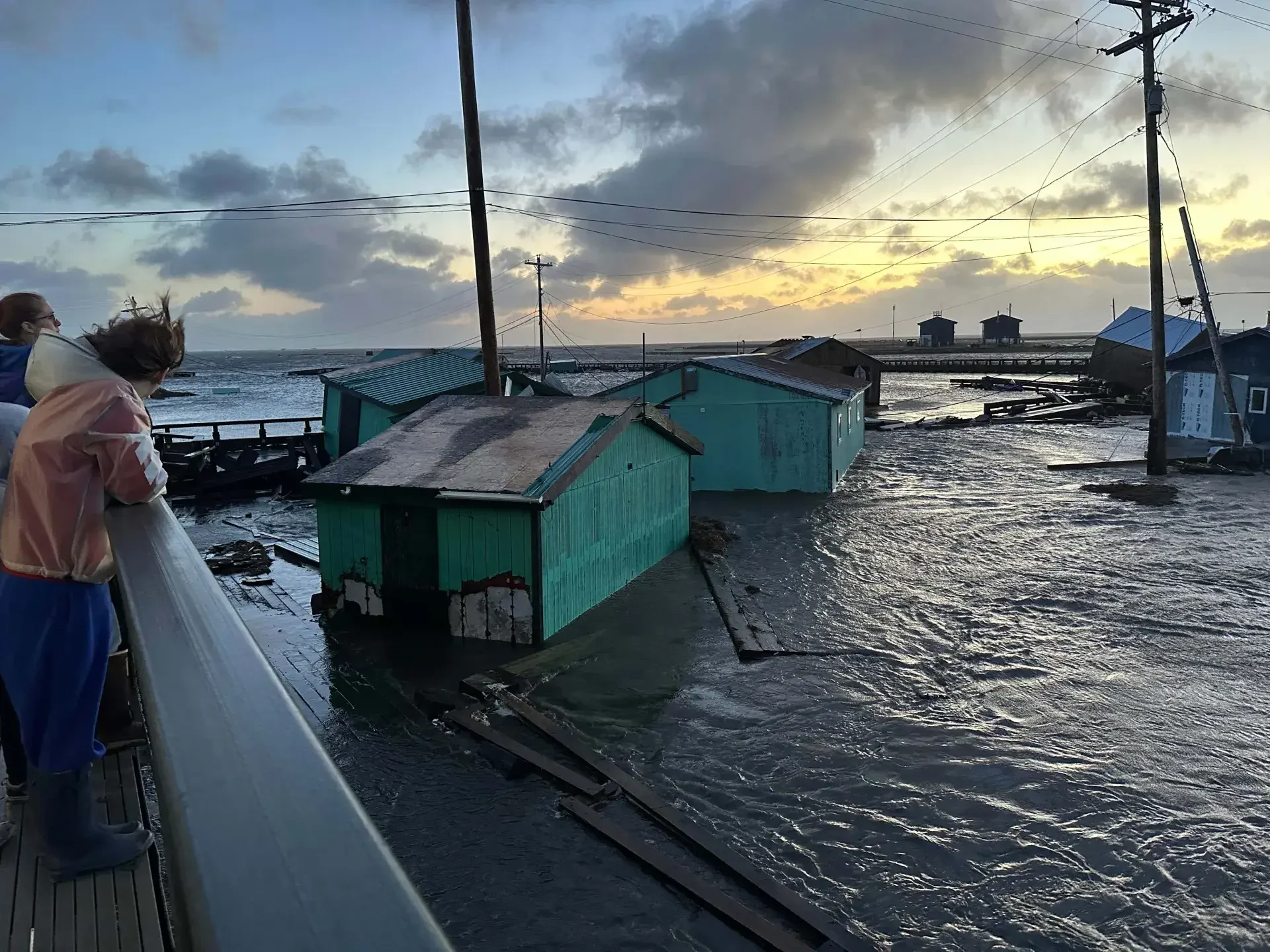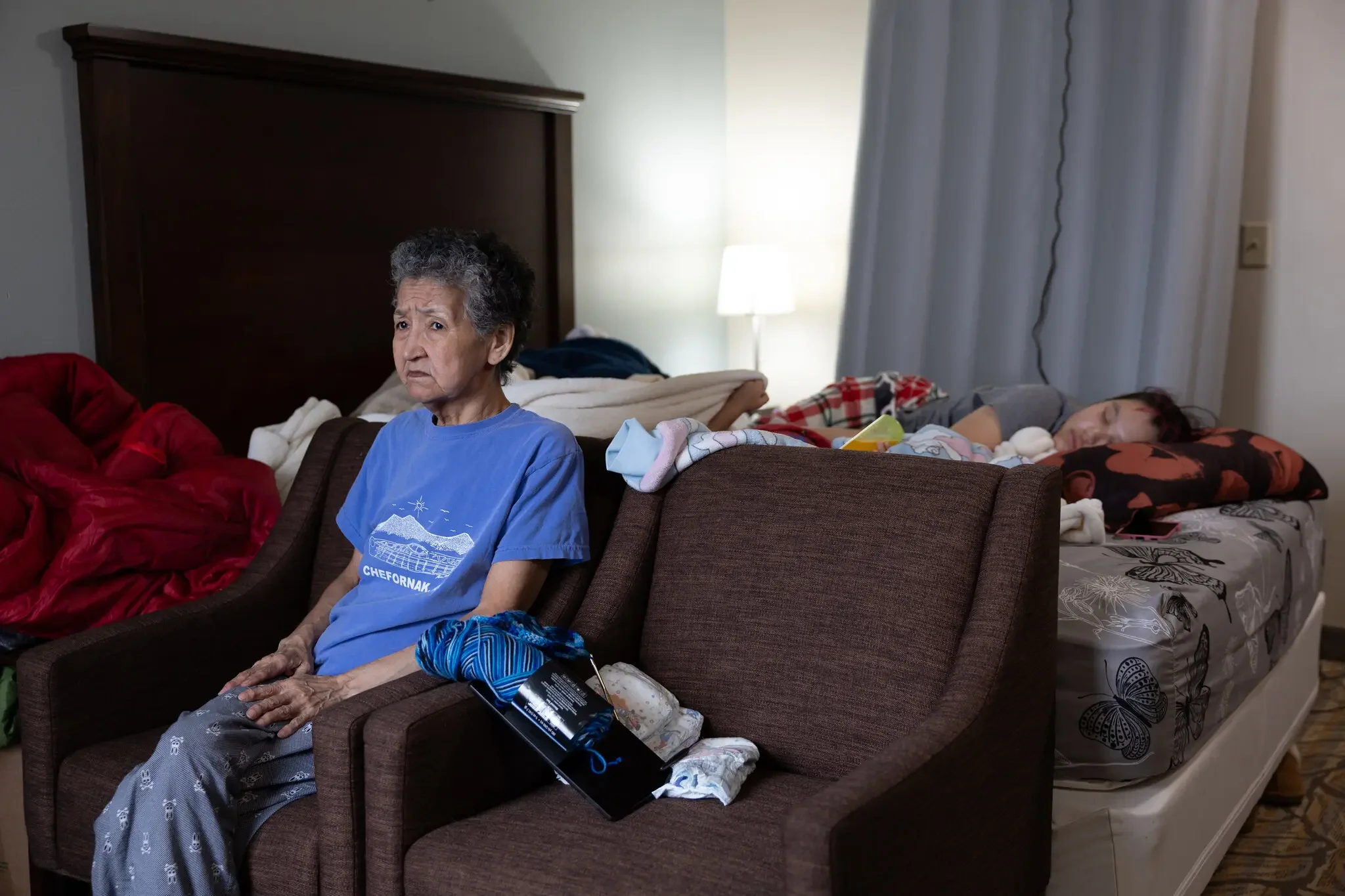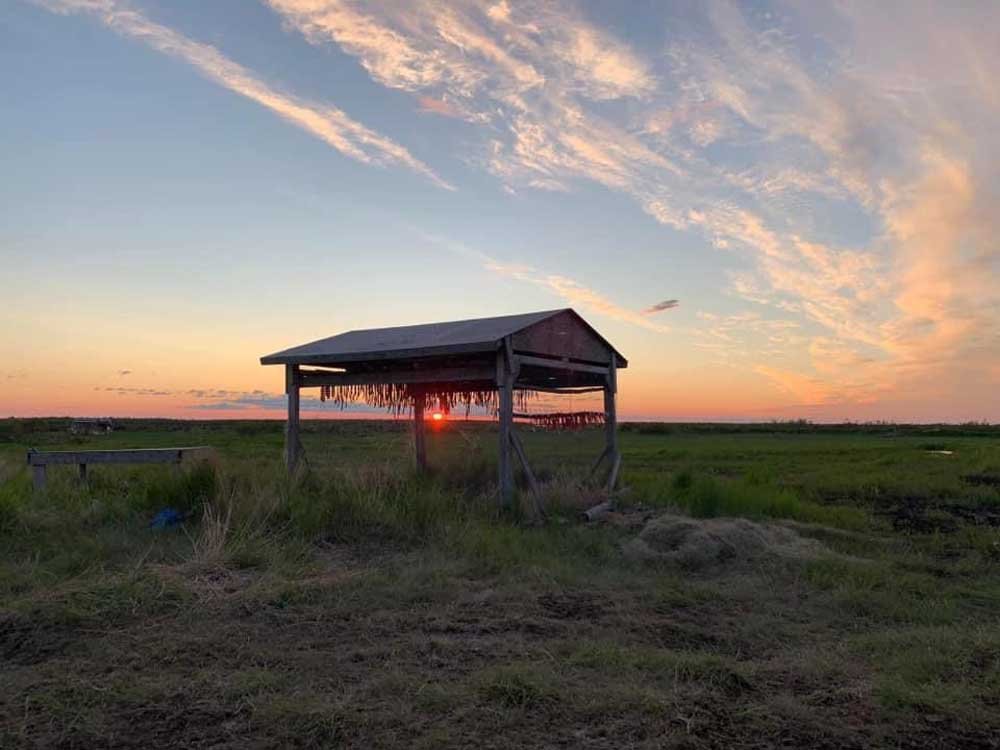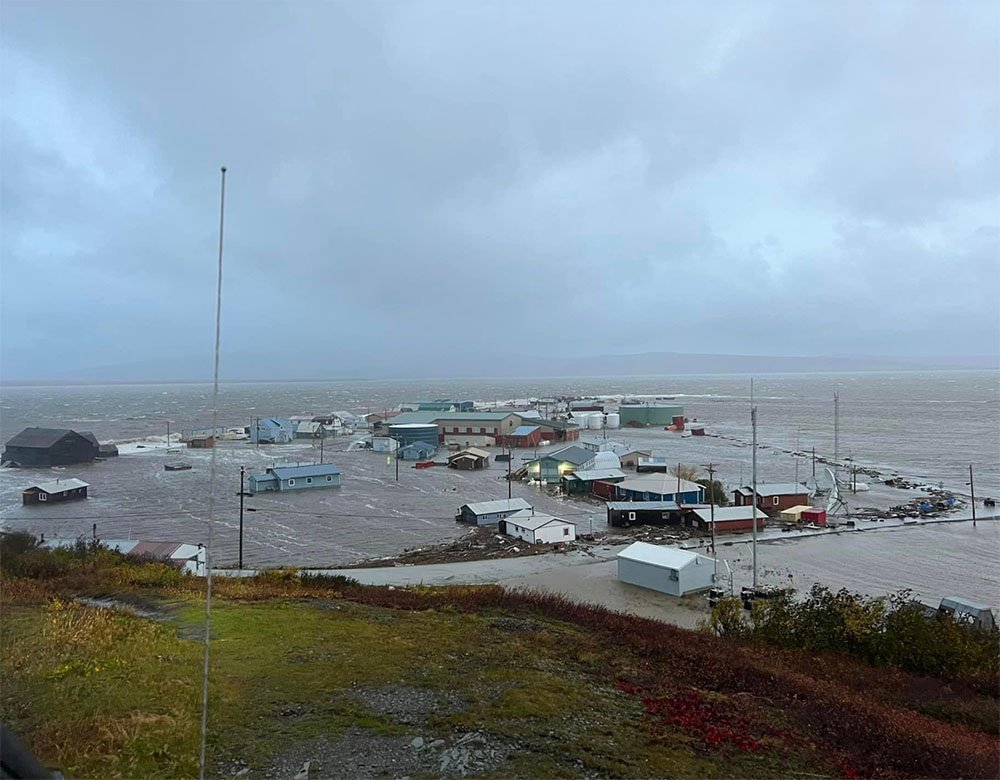
Alaska Climate Justice Program
Rights, Resilience, and Community-led Adaptation
The Alaska Climate Justice Program at Alaska Institute for Justice works in partnership with Alaska Native Tribes to advance climate justice and advocate for policy changes so that Tribal communities can access the resources needed to adapt and become resilient to the accelerating impacts of the climate crisis.
Climate justice and advocating for human rights protections are the focus of our work with environmentally threatened Alaska Native communities as they work towards adapting and becoming resilient to the growing impacts of climate change.










Alaska Climate Change Can’t Wait.
The Arctic is warming four times faster than the rest of the world. This unprecedented warming is causing permafrost thaw, erosion, severe flooding, and sea level rise, threatening human health and safety across the region.
Permafrost thaw, flooding,
accelerating erosion,
usteq (catastrophic land collapse),
and severe storms are changing Alaska.
Across the state, homes are sinking into thawing permafrost, floods and storm surge are destroying critical infrastructure, and communities are forced to evaluate the viability of remaining on the lands they love and on which their homes are located.
Human rights, equity, and justice are at the forefront of our work with Alaska Native Tribes.
Alaska Native communities experiencing the accelerating impacts of the climate crisis are faced with difficult decisions on how to adapt to those impacts in a way that protects the health and safety of community members and critical infrastructure. These communities must determine whether they will seek to protect-in-place; engage in a managed retreat away from the imminent threats they are facing; or must, instead, relocate their entire community to a safer location.
Any governance framework designed to facilitate these adaptation strategies must respect and honor Tribal sovereignty, Indigenous rights, and Indigenous knowledge. As Darren John from Native Village of Kwigillingok explained during a workshop panel presentation, scientists and government agencies need to, “Listen to us.”
“Listen to us.”
-Darren John,
Native Village of Kwigillingok
Alaska Native Tribes face significant policy barriers in accessing the resources needed to adapt and become safe from the unprecedented impacts of climate change.
These policy barriers include the federal government’s failure to integrate usteq, catastrophic land collapse, into the definition of a “disaster”; the lack of meaningful access to Alaska Native Language interpretation and translation services; the benefit-cost analysis requirement under federal funding programs; misunderstandings about the critical value of subsistence; and the non-federal cost share requirement for federal grant funding.
PRESS
Publications
Read more about the challenges and barriers our Tribal partners face and our policy recommendations for eliminating those barriers by downloading our most recent publication.









